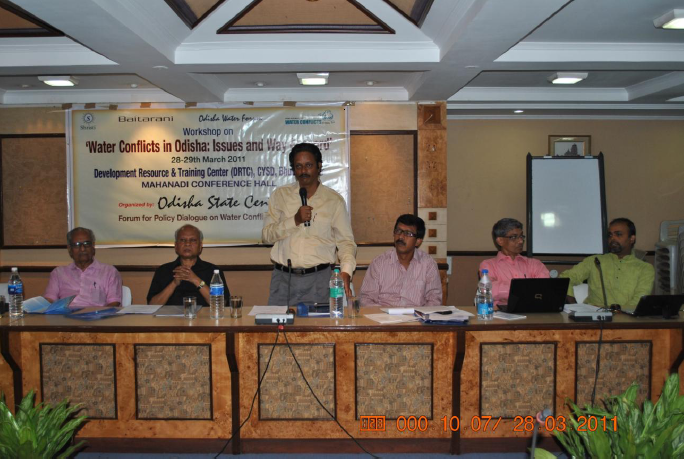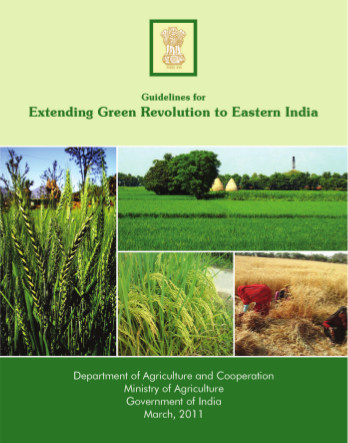/topics/governance
Governance
Analysis of TAC guidelines and decisions in recent meetings' - Dams, Rivers and People - Newsletter of SANDRP for April, May 2011
Posted on 27 May, 2011 01:26 PM
Newsletter of South Asia Network on Dams, Rivers and People (SANDRP) for April - May 2011 (Volume 9 Issue 3-4), focuses on the following topics.
- Analysis of TAC guidelines and decisions in recent meetings
The Advisory Committee in the Union Ministry of Water Resources for consideration of techno-economic viability of Irrigation, Flood Control and Multi Purpose Project Proposals (TAC in short) is supposed to discuss the techno-economic viability of the irrigation, flood control and multi-purpose project proposals as per the Resolution published in the Union of India Gazette Notification No. 12/5/86-P-II dated Nov 27, 1987.
Sir Ratan Tata Trust offers one-year scholarships at the Masters’ level - Apply by 20th June, 2011
Posted on 27 May, 2011 01:01 PMEstablished in 1919, the Sir Ratan Tata Trust (SRTT) is one of the oldest philanthropic institutions in India, and has played a pioneering role in changing traditional ideas of charity. The Navajbai Ratan Tata Trust, formed in 1974, works together with SRTT to bestow grants.
The Sir Ratan Tata Trust, Mumbai, offers one-year scholarships at the Masters’ level for students who wish to study in the UK or two-year scholarships in the USA in the broad field of Development Studies, with special focus on Developmental Economics, Public Health or Science-Technology-Society (STS) Studies.
Proceedings of 'Water Conflicts in Odisha : Issues and way forward' - Organised by Odisha State Centre of the Forum for Policy Dialogue on Water Conflicts in India - 28th - 29th March 2011, Bhubaneswar
Posted on 27 May, 2011 12:48 PM
Development Resource & Training Centre (DRTC), CYSD, Bhubaneswar:
A 2-days Workshop on “Water conflicts in Odisha: Issues and way forward” has been organized during 28th – 29th, March, 2011 at Bhubaneswar by ‘Odisha State Centre’ of the ‘Forum for Policy Dialogue on Water Conflicts in India’. Environmental activists, thinkers, academicians, Government Officials, Farmer leader’s and Civil Society Organizations from different parts of the state participated in the workshop along with members of the National Steering Committee of Forum to discuss about the ongoing and emerging water conflicts in different geographies of the state.
"NREGA implementation in State not satisfactory": MGNREGS News updates compiled by FES (16 - 30 April 2011)
Posted on 27 May, 2011 12:11 PM
Main highlights in this update:
- NREGA implementation in State not satisfactory: The report card on implementation of Mahatma Gandhi National Rural Guarantee Act (MGNREGA) is a mix bag for Assam, with at least 62 per cent households being provided employment under the flagship schemes, while ombudsman has not been constituted for any district and State fund.
Guidelines for extending green revolution to eastern India - Document prepared by Department for Agriculture and Cooperation (2011)
Posted on 27 May, 2011 07:50 AM The states of Assam, Bihar, eastern U.P, Chattisgarh, Jharkhand, Bengal, Orissa were allocated extra funds in the last year for this purpose.
The states of Assam, Bihar, eastern U.P, Chattisgarh, Jharkhand, Bengal, Orissa were allocated extra funds in the last year for this purpose.
Guidelines for rainfed area development programme - Document prepared by Department of Agriculture and Cooperation (2011)
Posted on 27 May, 2011 07:47 AMRainfed areas account for nearly 57 per cent of the agricultural land in India. These areas assume special significance in terms of ecology, agricultural productivity and livelihoods for millions. With proper management, rainfed areas have the potential of contributing a larger share to food grain production.
Guidelines for integrated development of 60,000 pulses villages in rainfed areas - Document prepared by Department of Agriculture and Cooperation (2011)
Posted on 27 May, 2011 07:36 AMThe budget allocates Rs 300 crores under the Rashtriya Krishi Vikas Yojana (RKVY) for this scheme. This project will supplement the ongoing work on pulses development under the National Food Security Mission. There is also an emphasis on building institutions that would provide market linkage to the grower of pulses. The states of M.P, U.P, Karnataka, Andhra Pradesh, Gujarat, Chattisgarh, Bihar, Maharashtra, Orissa, Rajasthan, and Tamilnadu were chosen for this programme. These states together constitute nearly 96% of area where pulses are grown.
Khadkipada, Maharashtra - A tale of development, an account of transformation - A film by WOTR on the Water Channel
Posted on 26 May, 2011 01:42 PM
A perspective of watershed development in the central Himalayan state of Uttarakhand – A paper by Malavika Chauhan
Posted on 25 May, 2011 08:23 AMIt traces the historical growth of thinking on watershed in the region, and highlights issues and influences. Impacts and benefits are discussed in relation to sustainability. The review shows that success in these projects is usually isolated, mostly seen in small micro-watersheds with naturally good water harvesting conditions.
The 6th round New India fellowship – The New India Foundation – Apply by 31st July, 2011
Posted on 24 May, 2011 01:02 PMThe New India Foundation, based in Bangalore, uniquely matches public-spirited philanthropy with ground-breaking and relevant scholarship. In the six decades since Independence, there has been a large body of work produced by Indian historians and social scientists.
The core activities of the New India Foundation are the New India Fellowships, awarded to scholars and writers working on different aspects of the history of independent India. The duration of the fellowships is twelve months. Each year, mixes of young and experienced candidates are selected.





